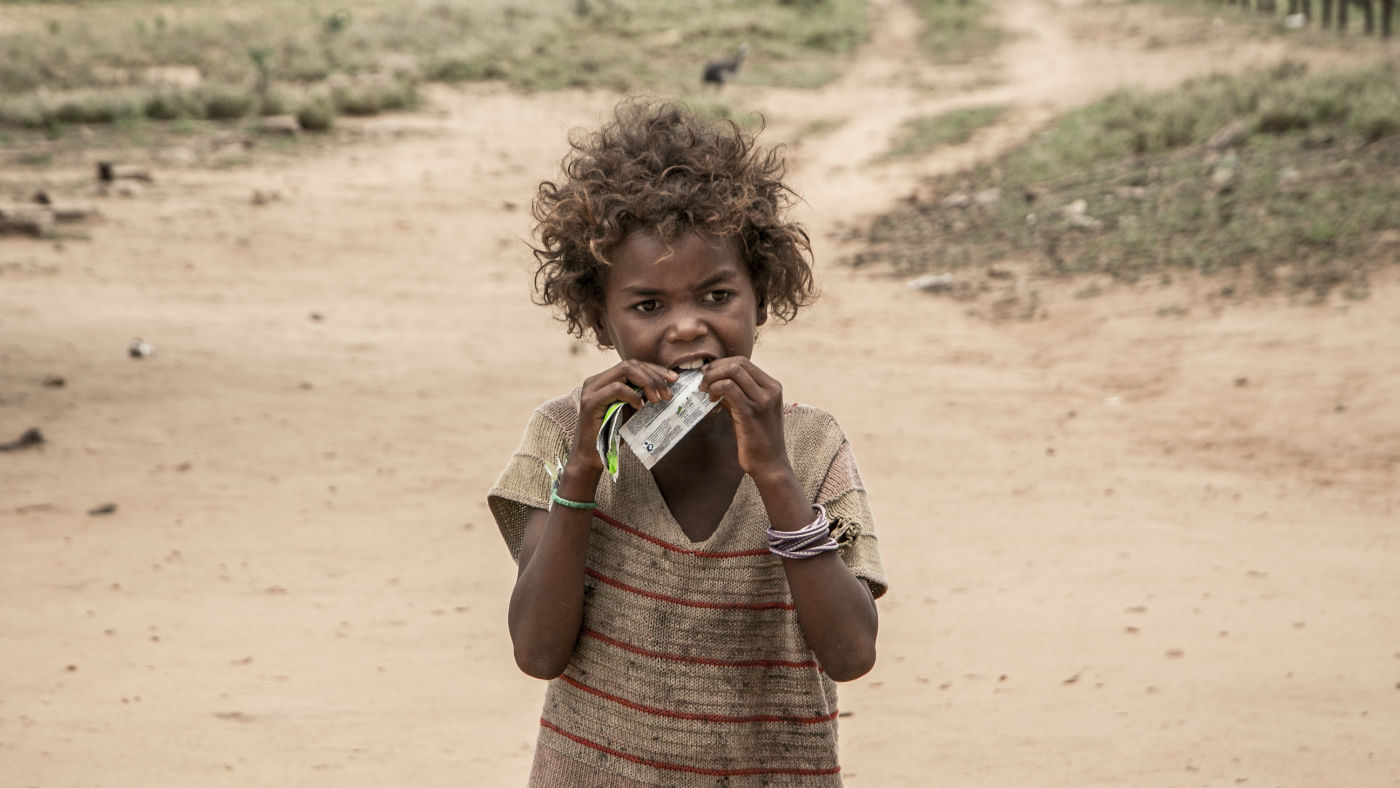Child hunger in Africa ‘due to lack of political will’
Nearly half of all child deaths on the continent due to malnourishment as economic growth fails to halt crisis

A free daily email with the biggest news stories of the day – and the best features from TheWeek.com
You are now subscribed
Your newsletter sign-up was successful
A lack of political will means hunger is still the cause of almost half of all child deaths in Africa, despite an economic boom on the continent, a new think tank report has found.
The Ethiopian-based African Child Policy Forum (ACPF) has issued an urgent call to action after it found 90% of all children are malnourished or undernourished on the continent, while 60% do not meet the minimum meal frequency threshold set by the World Health Organization.
Two in five do not eat meals regularly meaning Africa could have one billion undernourished, malnourished and hungry children and young people by 2050 if current levels continue unabated.
The Week
Escape your echo chamber. Get the facts behind the news, plus analysis from multiple perspectives.

Sign up for The Week's Free Newsletters
From our morning news briefing to a weekly Good News Newsletter, get the best of The Week delivered directly to your inbox.
From our morning news briefing to a weekly Good News Newsletter, get the best of The Week delivered directly to your inbox.
A child dies every three seconds globally due to food deprivation – 10,000 children every day – “but although figures show an improvement in child hunger at a global level, it is getting worse in some parts of Africa, where the problem is largely a question of political will”, says The Guardian.
Conflict and the climate crisis have exacerbated the problem in Africa, as has a “broken” food system. Three-quarters of the continent’s stunted children under the age of five live in countries that have become war zones, while supply chains are unfit for serving rapidly expanding urban populations and the rural poor. Increased food production has not resulted in better diets.
On Wednesday, the UN’s top humanitarian official sounded the alarm about the looming risk of famine in the Horn of Africa because of drought, warning that more than five million people are threatened, mostly Somalis.
The New York Times reports Somalia “has suffered more than half a dozen periods of food insecurity in the nearly four decades of strife and anarchy that have roiled the country”.
A free daily email with the biggest news stories of the day – and the best features from TheWeek.com
The latest emergency has prompted the UN’s under secretary general and emergency relief coordinator Mark Lowcock to allocate $45m (£35m) from its emergency relief fund to help purchase food and other assistance for people of the region.
Yet despite these environmental and socio-economic factors “child hunger is fundamentally a political problem, the offspring of an unholy alliance of political indifference, unaccountable governance and economic mismanagement”, writes ACPF chair Graca Machel in the Financial Times.
“It is driven by poverty and wealth and gender inequality - children from poor and rural backgrounds suffer most from hunger and women and girls are disproportionately affected,” she says.
While Africa’s economic growth has been impressive by historical and world standards over the past two decades, “it has not been inclusive, with little impact on child hunger”, says the report, adding “economic growth, without appropriate pro-poor policies, is not sufficient to address child hunger.”
The ACPF cites Nigeria as a prime example, where GDP has risen by roughly 4% annually in recent years, but growth has failed to halt stunting in children.
The report also makes clear that eradicating hunger should “not only be a priority for governments because it is a humanitarian issue but because it also contributes to inhibiting a country’s economic performance”, says The Independent.
With stunted children less healthy and productive, doing less well in school and ending up earning lower incomes than their peers, the think tank has estimated child hunger costs African countries between 1.9% and 16.5% of their GDP.
Calling for a “radical” new political and economic agenda, the ACPF said eradicating hunger should be seen as an investment, estimating that, in Nigeria alone, the government could see a return rate of $85 for every dollar spent reducing stunting in early life.